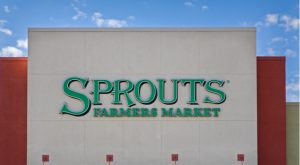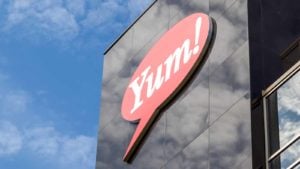In case you hadn’t noticed, America is having a delivery dilemma. What started out as a quaint thing called “shopping from home” has grown into perhaps the dominant industry of this generation. E-commerce is not only changing the way consumers shop, but it’s also changing how they spend their leisure time. And increasingly those consumers are choosing to stay at home. Enter food delivery stocks.
Food delivery is creating an investment opportunity that goes beyond Amazon (NASDAQ:AMZN) and streaming services like Netflix (NASDAQ:NFLX) or Disney (NYSE:DIS). A new survey by the Gerald J. and Dorothy R. Friedman School of Nutrition Science and Policy at Tufts University found that 46% of respondents either avoided cooking because they didn’t have time or because they hated the cleanup afterwards. In that same survey, 66% said supermarket visits were more time-consuming than other tasks.
What is particularly intriguing about food delivery for investors is that there are multiple ways for you to invest. There are pure play companies like GrubHub (NASDAQ:GRUB). But, as GRUB is discovering, it can be tough to make money as just a delivery service. There are also meal kits and grocery delivery services. And of course that is yet another reason to consider companies like Amazon and Walmart (NYSE:WMT).
But for the purposes of this discussion, I’d like to showcase three food delivery stocks that are bringing something a little different to the table. And that might be reason enough to make them worthy of your investment dollars.
Sprouts Farmers Market (SFM)

It wasn’t long ago that restaurants were popping up like weeds. A new generation of consumers was saying “no” to cooking at home, and demanded healthier alternatives when dining out. This led to the emergence of fast casual restaurants such as Chipotle (NYSE:CMG).
As home delivery has emerged, meal kit companies sprang up as a way to address two common issues. First, consumers wanted an easier way to buy healthy ingredients. And second, they wanted a way to get healthy recipe ideas. Pure play meal kit companies such as Blue Apron (NYSE:APRN) and Hello Fresh are having a tough time as big box grocery chains such as Walmart and Kroger (NYSE:KG) move in on their turf.
That’s where Sprouts Farmers Market (NYSE:SFM) comes in. Sprouts offer “Healthy Eating for Less.” It’s kind of like the discount alternative to Whole Foods. The company’s web site features an “Articles and Resources” tab to help generate ideas. And it offers online ordering and delivery in select locations. Right now analysts have given the stock a consensus “buy” rating. SFM stock is finding price support above $17 per share.
YUM! Brands (YUM)

One of the challenges for restaurants that partner with food delivery companies is who owns the customer data. That’s what makes YUM! Brands (NYSE:YUM) a compelling alternative.
They have a partnership with GrubHub that gives them a seat on GRUB’s board of directors. This gives YUM a voice in the strategic growth of GrubHub. It also ensures that the point-of-sale systems at all KFC’s and Taco Bell’s are fully integrated with GrubHub, making for more accurate ordering and faster delivery.
And, YUM has access to GRUB’s data. This is a critical component. YUM avoids the infrastructure costs of building out their own food delivery service while still getting access to the customer data that GrubHub generates.
The partnership with GrubHub is not without its problems, but even if GrubHub becomes an acquisition target (a rumor that GRUB vehemently denies), YUM is one of the darlings of the fast-food industry because of its asset-light model of franchising that keeps the company’s free cash flow (FCF) at attractive levels.
Uber (UBER)

Uber (NYSE:UBER) may seem like an odd choice for a food delivery stock. Especially since pure play food delivery companies are having a tough go of it.
However, the same Tufts University survey that found many consumers found cooking to be an inconvenience, also reported that 28% of respondents said they didn’t know how to cook. This means there will be an addressable market for food delivery for some time.
Uber has made a smart pivot into food delivery with Uber Eats. One of its notable claims to fame was landing McDonalds (NYSE:MCD) as an account. But unlike what’s going on with Yum Brands, Uber Eats is agnostic when it comes to who it partners with. Their hope is that consumers will become loyal to the app. And so far it seems to be working.
Uber Eats is the company’s fastest growing business. In the two years between 2016 and 2018, revenues jumped from 2.7% to 13%. Uber as a company, and perhaps as a concept, has problems. But at its core, Uber offers a software solution. And that has value. As a stand-alone company or as part of an as yet-to-be-defined future, Uber should play a role in the food delivery game.
As of this writing, Chris Markoch did not have a position in any of the aforementioned securities.
